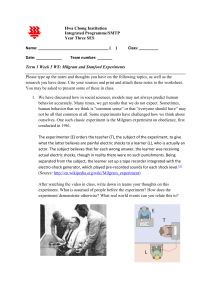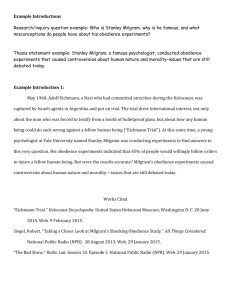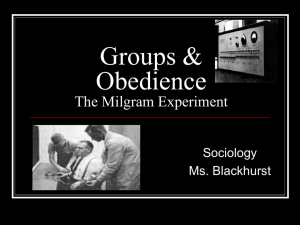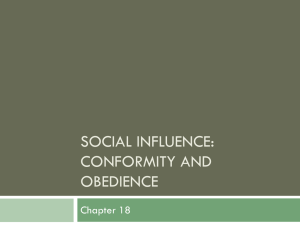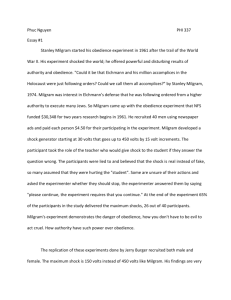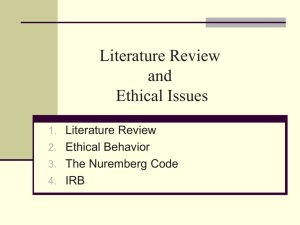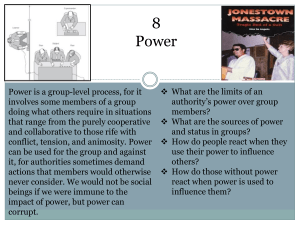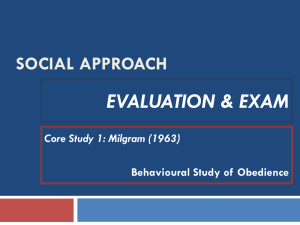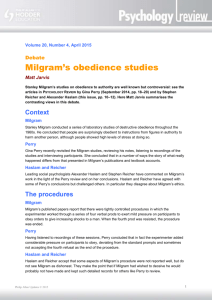How to Cite Sources with Inline Citations and Parenthetical
advertisement
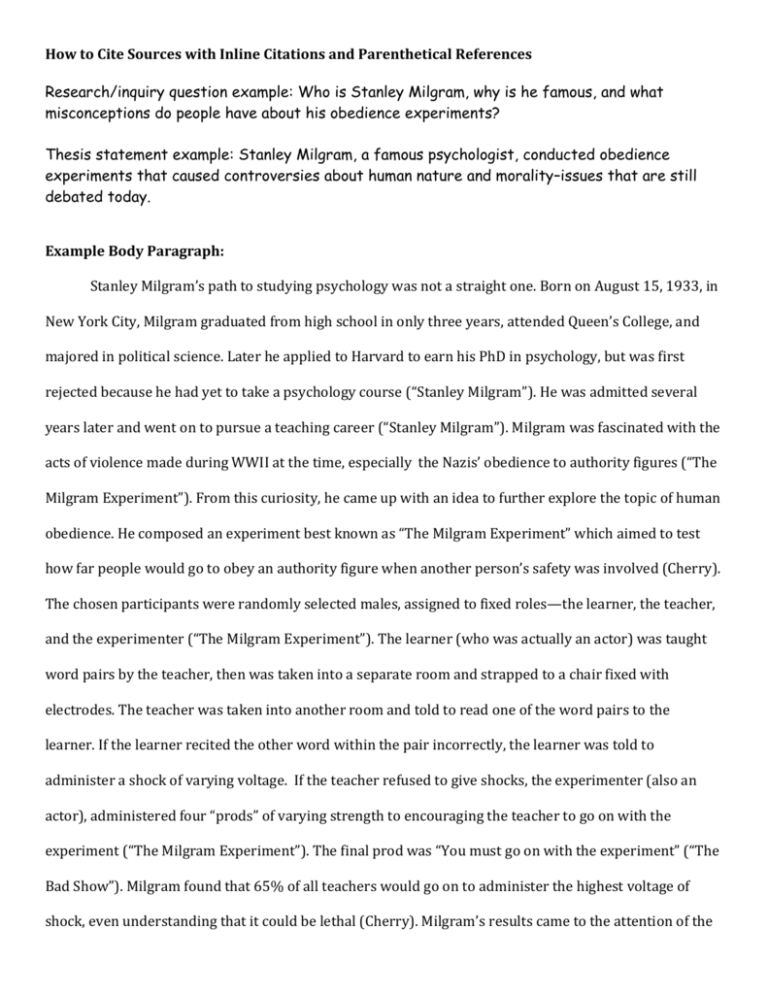
How to Cite Sources with Inline Citations and Parenthetical References Research/inquiry question example: Who is Stanley Milgram, why is he famous, and what misconceptions do people have about his obedience experiments? Thesis statement example: Stanley Milgram, a famous psychologist, conducted obedience experiments that caused controversies about human nature and morality–issues that are still debated today. Example Body Paragraph: Stanley Milgram’s path to studying psychology was not a straight one. Born on August 15, 1933, in New York City, Milgram graduated from high school in only three years, attended Queen’s College, and majored in political science. Later he applied to Harvard to earn his PhD in psychology, but was first rejected because he had yet to take a psychology course (“Stanley Milgram”). He was admitted several years later and went on to pursue a teaching career (“Stanley Milgram”). Milgram was fascinated with the acts of violence made during WWII at the time, especially the Nazis’ obedience to authority figures (“The Milgram Experiment”). From this curiosity, he came up with an idea to further explore the topic of human obedience. He composed an experiment best known as “The Milgram Experiment” which aimed to test how far people would go to obey an authority figure when another person’s safety was involved (Cherry). The chosen participants were randomly selected males, assigned to fixed roles—the learner, the teacher, and the experimenter (“The Milgram Experiment”). The learner (who was actually an actor) was taught word pairs by the teacher, then was taken into a separate room and strapped to a chair fixed with electrodes. The teacher was taken into another room and told to read one of the word pairs to the learner. If the learner recited the other word within the pair incorrectly, the learner was told to administer a shock of varying voltage. If the teacher refused to give shocks, the experimenter (also an actor), administered four “prods” of varying strength to encouraging the teacher to go on with the experiment (“The Milgram Experiment”). The final prod was “You must go on with the experiment” (“The Bad Show”). Milgram found that 65% of all teachers would go on to administer the highest voltage of shock, even understanding that it could be lethal (Cherry). Milgram’s results came to the attention of the public at a time when international attention was focused on the trial of famous Nazi Adolf Eichmann, who claimed that the atrocities he committed were simply a result of his following orders. Milgram’s straightforward yet shocking results caused people to reconsider how humans react to obeying authority figures. According to an episode of Radio Lab, a National Public Radio show that explores topics beyond the surface, Milgram conducted many other versions of the experiment that exhibited that the levels of a participant’s obedience depended on various other factors, such as if the experimenter was wearing a white lab coat, or if the teacher could see the learner getting shocked. The results of these experiments… 1. When do you use a parenthetical reference? When the fact comes from a source in your Works Cited page, and it is not common to the majority of the sources you listed. 2. What is an inline citation? Look at the beginning sentence in the second example body paragraph. The source is spelled out in the sentence (that’s why it’s called an inline citation). It does not need (“The Bad Show”) at the end of the fact in this case. 3. How do you decide what goes inside the parentheses? Look at your Works Cited page. Whatever is listed first in your citation is what should go in the parentheses. Works Cited Cherry, Kendra. "Stanley Milgram Biography." N.p., n.d. Web. 27 Jan. 2015. "Milgram Experiment | Simply Psychology." Milgram Experiment | Simply Psychology. N.p., n.d. Web. 27 Jan. Siegel, Robert. “Taking a Closer Look at Milgram’s Shocking Obedience Study.” All Things Considered. National Public Radio (NPR). 28 August 2013. Web. 29 January 2015. "Stanley Milgram." Wikipedia. Wikimedia Foundation, n.d. Web. 27 Jan. 2015. “The Bad Show.” Radio Lab. Season 10. Episode 5. National Public Radio (NPR). Web. 29 January 2015.
